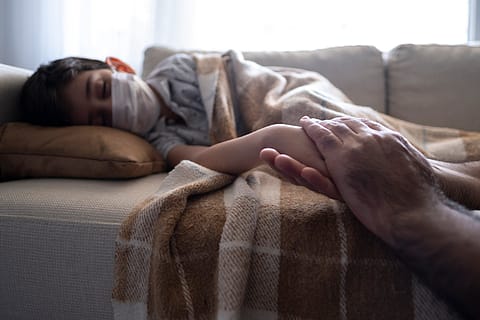Why do children with serious illnesses need palliative care?
Palliative care, specifically tailored to the needs of young patients, plays a crucial role in ensuring their well-being and improving their quality of life

Children with serious illnesses require a unique form of care that goes beyond traditional medical treatment. Palliative care, specifically tailored to the needs of these young patients, plays a crucial role in ensuring their well-being and improving their quality of life.
Imagine a 30-year-old mother has just been told that her 8-year-old child has Type 1 diabetes and that this is going to be a lifelong condition with no cure. How does the child then manage a lifetime of insulin dependency? Who helps organise the funding for lifelong treatment? Is there a support system to take care of the child’s medical needs so that the family does not have to travel hours to the hospital OPD? The current healthcare system is not equipped with services that could provide care beyond the diagnosis and treatment.
Here’s where paediatric palliative care can make a difference.
Palliative care isn’t limited to just people with life-threatening diseases or just to adults but lends itself to anyone, children included, with a serious illness, and at any stage of treatment: right from diagnosis, through the treatment journey, and can be provided along with curative treatment.
The World Health Organisation’s (WHO) definition of palliative care appropriate for children and their families is the active total care of the child’s body, mind and spirit, and also involves giving support to the family. Effective palliative care requires a broad multidisciplinary approach that includes the immediate caregivers and makes use of available community resources.
The World Hospice and Palliative Care Day, marked on the second Saturday of October every year, gives us an opportunity to reflect on our progress in making palliative care available to anyone with a serious illness and especially to children. According to the Global Atlas of Palliative Care, over 56.8 million people are estimated to require palliative care every year. The majority (67%) are adults over 50 years old and at least 7% are children. In India, it is estimated only 4% of those who require palliative care receive it, highlighting a huge unmet need.
The value of palliative care offered close to diagnosis left a lasting impression on Ajay. He was 8 years old when he was diagnosed with Type 1 diabetes and was referred by his treating doctor to the palliative care team within the hospital. The palliative care physician spoke to Ajay’s mother to reassure her that despite this being a lifelong condition, the team was there to support the family at every step of the way. The team also spoke to Ajay about his condition, and he was introduced to other children with Type 1 diabetes. Over the next few weeks, Ajay and his family learned how to manage and cope with the demands of his illness, including the importance of his daily insulin, a focused diet, as well as his emotional health. The endocrinologist treating Ajay’s diabetes appreciated the value of the palliative care team in ensuring the treatment protocol was followed, and Ajay and his family was thankful they had this support of the palliative care team to help them navigate the realities of living with this condition.
This is one story of change. However, there are many children with serious illnesses who do not get this layer of essential support. The challenges are manifold – lack of awareness about palliative care, few palliative care-trained professionals, inequitable distribution of services and the dearth of funding for centers that provide such care. Paediatric palliative care is increasingly essential due to the frequent oversight of assessing children's pain and symptoms and the often-neglected needs of caregivers and siblings.
We know that we cannot shield children with serious illnesses from pain. Pain is inevitable for them; however, suffering is not. All children deserve access to this care. How else will they and their families, be able to take on the burden of the symptoms that every serious illness imposes on them?
We need compassionate communities that help identify children with serious illnesses, connect them to care services and volunteer to spread awareness about palliative care. Compassion, as we know, becomes contagious, and together, we can transform care for children with serious illnesses.
(Rumana Hamied is Managing Trustee of Cipla Foundation)
(INR CR)